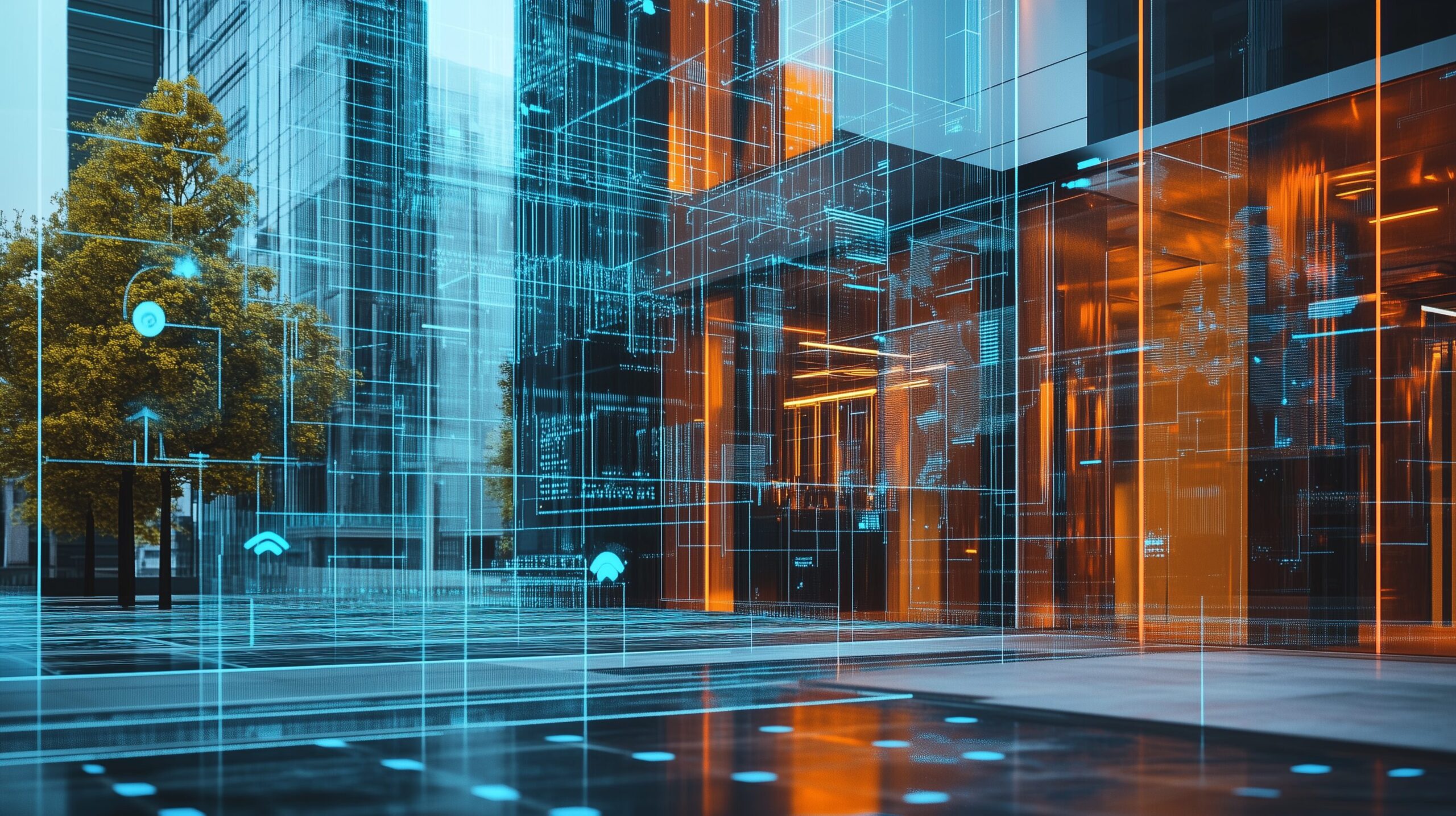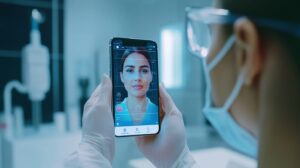
How AI Is Revolutionizing Security Across Industries
An interview with Egor Olteanu, Co-Founder & CEO at Volt AI
Q: Could you start by telling us about Volt AI? What services do you offer, and who are your typical clients?
Volt AI is a software company that uses artificial intelligence to transform traditional security systems. Our platform seamlessly integrates with existing security cameras, creating a dynamic, real-time digital map that tracks people and objects to detect potential threats and enable faster responses to those threats.
The inception of Volt AI was deeply personal. After the tragic YouTube shooting in April 2018, where an armed intruder entered the company's San Bruno, California headquarters, injuring three employees, we were motivated to act. That incident, coupled with a series of devastating shootings at schools and concerts nationwide, spurred Dmitry Sokolowski, our Chief Technology Officer, and me to co-found Volt AI.
With our combined experience from tech giants like Google, Alphabet, Meta, Amazon, Apple, and Uber, along with our experience with the U.S. Military and Department of Defense, we realized we could leverage our expertise to create a solution that would not only protect people but also empower security personnel with real-time, actionable intelligence.
Volt AI’s technology is robust and multi-functional. It detects weapons, identifies medical emergencies, tracks suspicious events, and analyzes crowd behavior to flag early signs of aggression or overcrowding. Once an incident is identified, the escalation is reviewed by a human team which makes a judgment call to escalate the alert, eliminating false positives. Imagine an intruder enters a facility with a firearm, later conceals the weapon in their pocket, and tries to blend into the crowd.
Our system would not only detect the weapon but also continuously track the individual’s movements, providing law enforcement with precise, real-time information to stop the threat before it escalates. In a security incident, every second counts, and our technology is designed with that urgency in mind.
At Volt AI, our mission is clear: to build autonomous systems that protect our communities. Our technology is trusted by a diverse range of clients, from mid-sized companies to global enterprises, and is deployed in offices, schools, universities, critical infrastructure, data centers, industrial facilities, warehouses, and municipalities.
Q: Many people are still trying to understand AI and its capabilities. Besides using AI like ChatGPT to help with writing resumes, what are some AI applications that most people might not be familiar with?
AI applications can assist with streamlining communication, automating processes, and saving time so you can be more efficient in your personal or professional role. For example, most people are unaware that AI applications can make our communities safer. Depending on your job function, an AI application may augment your role, allowing you to use your time and energy more efficiently. Here are some examples:
Security professionals who monitor cameras
Traditionally, security professionals, such as security guards, have been tasked with monitoring multiple TV screens displaying footage from various cameras—a method that’s not only labor-intensive but also prone to human error. When one person is responsible for overseeing dozens of monitors that cycle through different camera feeds, it’s easy to miss critical security threats, especially when intruders conceal weapons or move out of one camera’s view.
AI changes this by allowing security professionals to focus on quickly acting on incidents when they receive an alert. The right AI application will provide real-time information on a threat’s exact location, thereby augmenting the role of security personnel and enabling a faster and more effective response.
Law enforcement responding to security threats
When law enforcement officers are called to respond to a security threat, one of the biggest challenges they face is the lack of accurate, timely information, which can delay the appropriate response. The right AI application will provide officers with precise, real-time information that allows them to act faster, potentially preventing a tragedy before it occurs.
School principals and university chancellors
School principals and university chancellors are responsible for the safety of hundreds, sometimes thousands, of students and staff. They’re constantly juggling numerous responsibilities, but ensuring a safe environment is always a top priority. AI can be a powerful tool in this regard. Currently, some schools and universities lack adequate security infrastructure, leaving them less prepared for potential security incidents.
AI applications can alert a principal or designated staff member to any medical emergency, physical altercation, or the presence of a weapon on school grounds and track the incident in real time, empowering principals and chancellors with accurate information that many currently don’t have efficient access to.
CEOs at large corporate office buildings
CEOs, particularly those managing large complexes or offices located near high-risk neighborhoods, have a vested interest in ensuring the safety of their employees. The April 2018 shooting that took place at the YouTube Headquarters in San Bruno, California, and other related corporate tragedies demonstrate that corporate security is a necessity.
The right AI application will use real-time geolocation to create a digital 3D map of the office building and identify areas designated for visitors. AI can also alert security personnel if an employee experiences a medical emergency in an isolated space like a stairwell or if an intruder is detected on the premises, tracking their movements in real time to facilitate a swift and effective response.
Municipalities committed to safer neighborhoods
As crime rates rise in some areas, city councils are increasingly turning to technology to help improve public safety. By integrating AI into security camera systems, local police and security professionals gain access to accurate, real-time information when responding to incidents like violent behavior or medical emergencies on the streets. Moreover, post-incident reporting, which typically takes weeks to complete, can be completed accurately and efficiently in minutes using AI.
The US Secret Service
The recent assassination attempt on Presidential candidate Donald Trump highlighted the severe consequences of a communication breakdown in identifying and relaying a threat to the appropriate security personnel. Our AI would have identified the shooter at an early stage and escalated an alert to the appropriate personnel - most people are unaware that we currently have the technology to assist law enforcement in effectively disarming and potentially preventing this type of political violence.
Q: Volt AI has been leveraging AI in innovative ways. Can you share some interesting use cases where you've applied your AI technology?
Imagine a student at school, alone in the hallway, suddenly collapsing. Without immediate help, the situation could quickly turn dire. Fortunately, in one such case, the school was using our application. The AI immediately alerted the principal to the incident, providing the exact location. Within seconds, the principal was by the student’s side, who was having an asthma attack, ensuring they received the necessary care. This is just one of many examples of how Volt AI leverages artificial intelligence to create safer, more supportive environments.
Volt AI is designed to proactively identify and track security threats in real time, even under challenging circumstances. For instance, if an intruder enters a corporate office brandishing a weapon and then conceals it in a backpack while fleeing to another part of the building, our AI doesn’t lose track. It continues to monitor the intruder’s movements across all locations, ensuring that security personnel remain informed and ready to respond despite the weapon being hidden from plain sight.
Our technology learns from the vast amount of security camera footage that often goes unwatched. Even if end-users don’t set specific parameters for the AI, the system independently analyzes these hours of footage, developing an understanding of what’s normal and what’s not. This makes the technology proactive, constantly scanning for anomalies that could indicate a potential threat and ensuring that safety measures are always one step ahead.
Q: For individuals interested in AI, what career options should they consider, both in technology and related fields?
AI allows you to do more with less at record speeds—all careers will have to adapt AI into their workflows in the near future. When considering your career options, it's essential to choose a field that not only excites you but also has a significant impact on the world.
Cybersecurity, for example, is a rapidly growing field that’s crucial for protecting our digital lives, making it an incredibly rewarding career choice. Robotics is another exciting area—imagine being at the forefront of developing machines that can transform industries and even improve our daily lives. And let’s not forget physical security, a sector that’s becoming increasingly vital as we seek to protect our communities and infrastructure in a constantly evolving world.
Ultimately, the key is to find a career that aligns with your passions and has the potential to make a difference. Whether it’s in technology or a related field, the integration of AI will open up new possibilities and challenges, making it an exciting time to explore and innovate.
Q: How do you see AI changing the future of work? How will it alter the workplace, and what can people do now to prepare for these changes?
In today’s rapidly evolving workplace, leaders are no longer just expected to manage teams—they’re now expected to harness the power of AI to optimize efficiency and uncover new opportunities.
This shift allows leaders to step away from routine, time-consuming tasks and focus on what truly sets humans apart: communication, empathy, and complex problem-solving.
As AI takes on data analysis and other repetitive functions, it’s crucial for leaders to foster a culture of adaptability and continuous learning within their teams. This means inspiring employees to embrace AI, offering training programs to help them upskill, and addressing any concerns or fears related to technology adoption. At the same time, leaders must stay informed about AI’s benefits and potential privacy issues, ensuring that AI is implemented ethically and that organizational trust remains strong.
For job-seekers, understanding how AI can enhance the company you’re targeting—and developing basic skills like effectively using AI tools such as ChatGPT—can set you apart and add significant value in your prospective role.
Overall, management styles are shifting to become more collaborative and inclusive, with leaders taking on the roles of mentors and coaches rather than just supervisors. The focus is on empowering employees, fostering innovation, and cultivating a flexible and resilient organizational culture.









